Leora J. Goodin
I'm a blogger dedicated to sharing insights on lifestyle and wellness. Through personal stories and practical tips, I aim to inspire and empower my readers to lead healthier, more fulfilling lives.
Black Friday and Cyber Monday 2023 Deals for Motion Designers, grab it now!
Students and teachers save a massive 71% on Creative Cloud All Apps
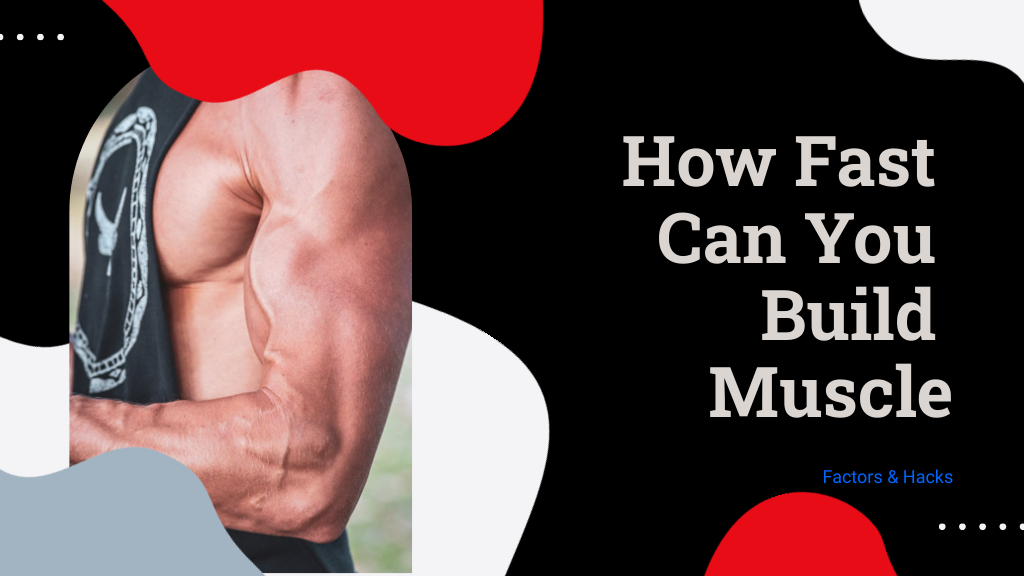
A look at how genetics, age, and body type play pivotal roles in muscle growth; discover what more influences your gains.

Your speed in building muscle is influenced by various factors, including your genetic makeup, age, and gender. For instance, genes affect your muscle fiber distribution and hormone levels, while younger individuals generally see faster gains. Your body type also plays an essential role; ectomorphs might find it challenging to bulk up compared to mesomorphs. Additionally, the right balance of exercise intensity, nutrition, and recovery further dictates your muscle growth pace. Discover how tailored workouts and diets can optimize your muscle-building potential.
While genetics don't determine everything, they play a significant role in muscle growth and your body's ability to gain muscle. You might wonder how fast you can gain muscle or how long it takes to gain muscle mass. These questions hinge largely on your genetic makeup.
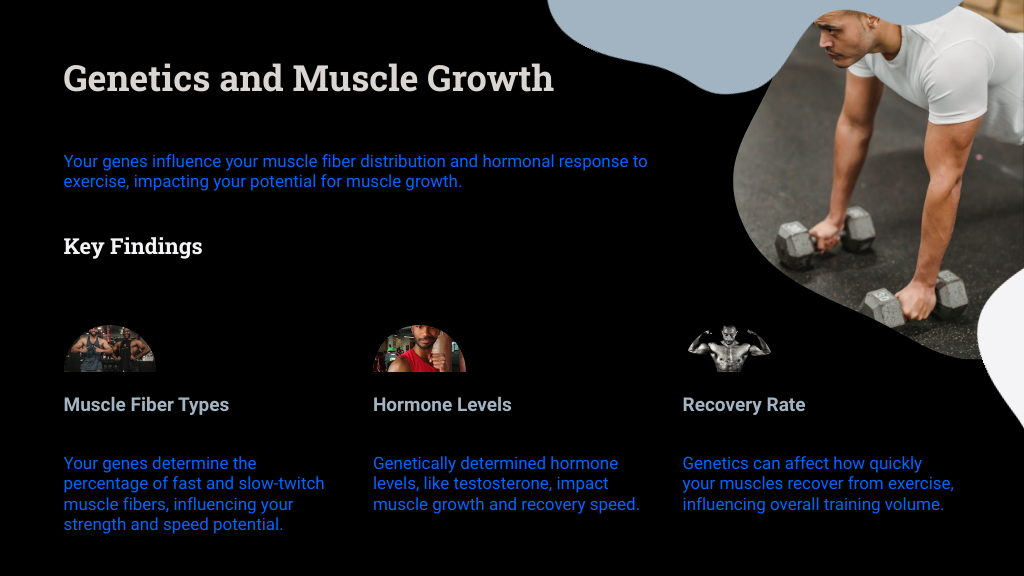
Certain genes regulate how your body responds to exercise, affecting muscle fiber type distribution and hormone levels, which in turn influence muscle growth rate. If your genetic profile favors quick muscle recovery and efficient protein synthesis, you'll likely see faster gains.
Conversely, if your genetic disposition leans towards slower metabolism and recovery, gaining muscle mass might require more time and effort. Understanding your genetic blueprint can help tailor your workout and expectations realistically.
Building on the understanding of genetics, it's also important to contemplate how age and gender affect muscle building. As you age, your muscle mass naturally decreases, which can impact how long it takes to build muscle.
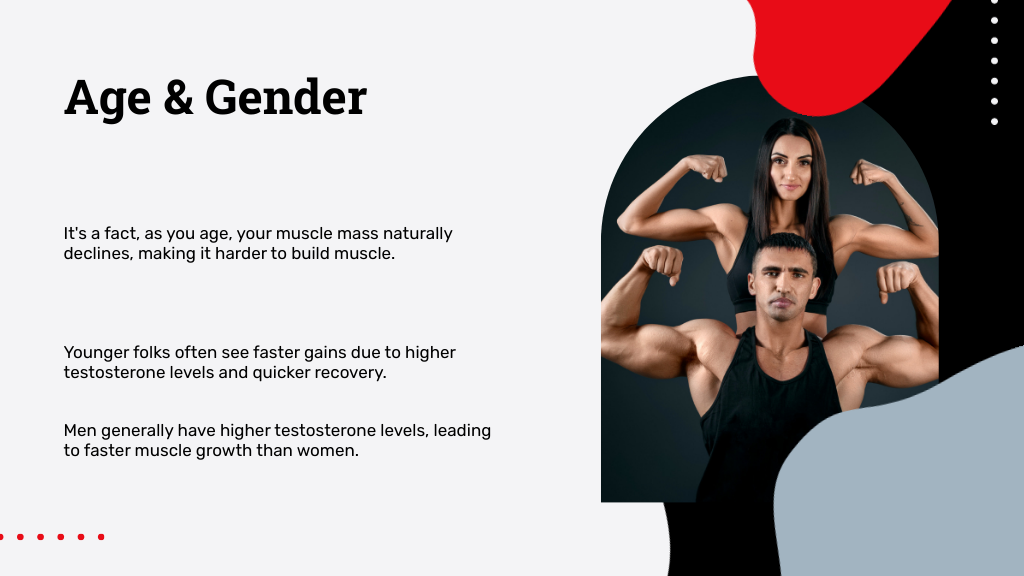
In your younger years, you'll typically see faster gains due to higher testosterone levels and a quicker recovery rate. For men, generally, how fast you can build muscle is faster compared to women, attributed mainly to higher testosterone levels, which facilitate greater muscle growth.
However, women can still achieve significant muscle strength and endurance, though the rate and volume of muscle growth may differ. Understanding these factors can help tailor your workout and expectations to fit your unique body's potential.
If you're trying to understand how effectively you can build muscle, it's crucial to take into account your body type. Different body types react differently to training, impacting how fast you can gain muscle mass and how long it takes to develop muscle.
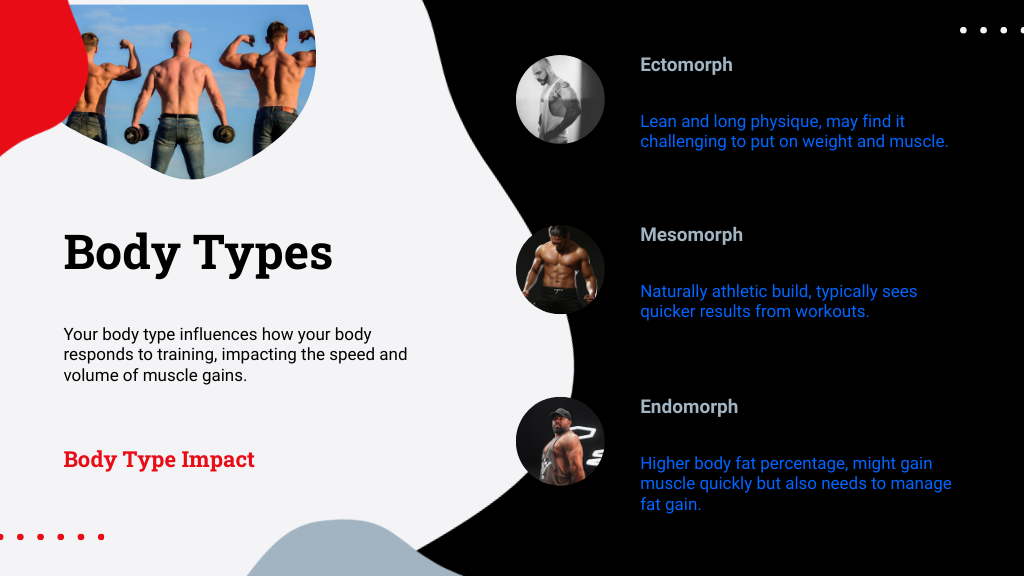
Ectomorphs, characterized by their lean and long physiques, often struggle to put on weight and muscle. They may find that muscle growth is slower and requires more effort.
Mesomorphs, with their natural athletic build, typically see quicker results from their workouts, allowing for faster muscle development.
Endomorphs, who tend to have a higher body fat percentage, might gain muscle quickly but also need to manage fat gain to maintain definition.
To maximize muscle gains, you'll need to carefully select exercises that target your goals, ensuring each session is tailored to stimulate growth effectively.
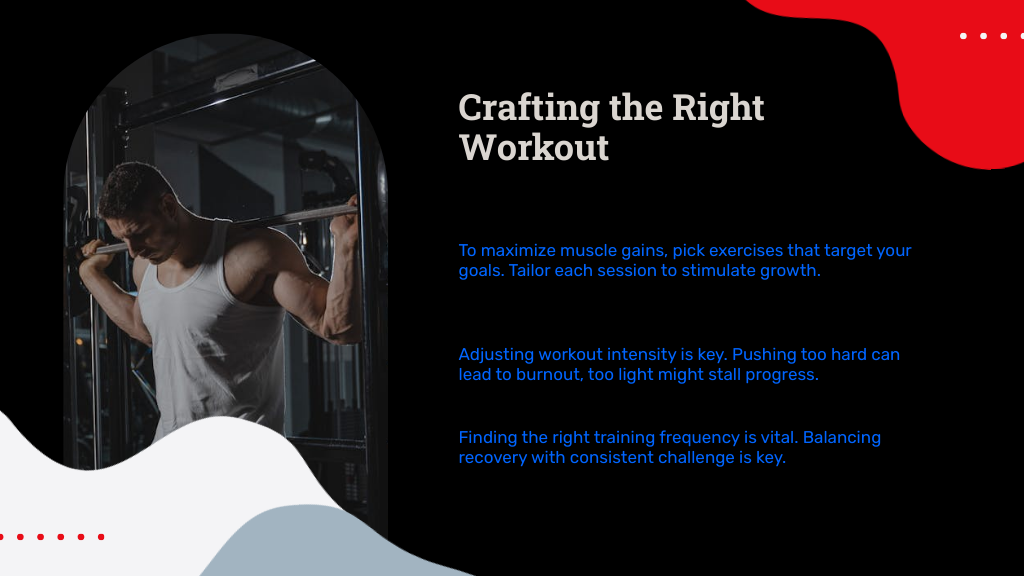
Adjusting the intensity of your workouts is essential; pushing too hard can lead to burnout, whereas too light may stall progress. Finding the right frequency—how often you train—is just as important, balancing recovery with consistent challenge to your muscles.
Choosing the right exercises, along with the appropriate intensity and frequency, is vital for maximizing muscle growth.
To learn how to gain muscle mass fast, focus on compound movements like squats, deadlifts, and bench presses. These exercises work multiple muscle groups simultaneously, enabling you to lift heavier weights and increase overall strength more effectively.
If you're wondering how to put on muscle fast, integrate these key exercises into your routine at least two to three times a week.
While selecting the right exercises is essential, adjusting the intensity levels of your workouts can greatly boost muscle growth.
To figure out how to grow muscle fast, you'll need to tweak how hard and how heavy you train. Intensity isn't just about stacking plates; it's about finding the sweet spot where each session pushes you just enough to trigger muscle adaptation but not so much that you risk injury.
So, how do you build muscle mass fast? Increase your loads progressively, and mix in some high-intensity techniques like drop sets or supersets to fatigue your muscles thoroughly.
After mastering how to adjust your workout's intensity, you'll also need to determine the best training frequency for muscle growth.
The question of how long should your workout be to build muscle is essential. Typically, training each muscle group 2-3 times per week is effective. This frequency allows for ideal recovery and growth stimulation. Each session should be intense enough to challenge your muscles but not so long that it leads to excessive fatigue.
As for how long to see muscle growth, it varies. Most individuals notice changes within four to eight weeks of consistent training, assuming their diet and rest are also optimized.
If you're aiming to enhance muscle growth, understanding the significant role of nutrition is essential. To put on muscle mass fast, you must prioritize your dietary intake, focusing on quality proteins, carbohydrates, and healthy fats.
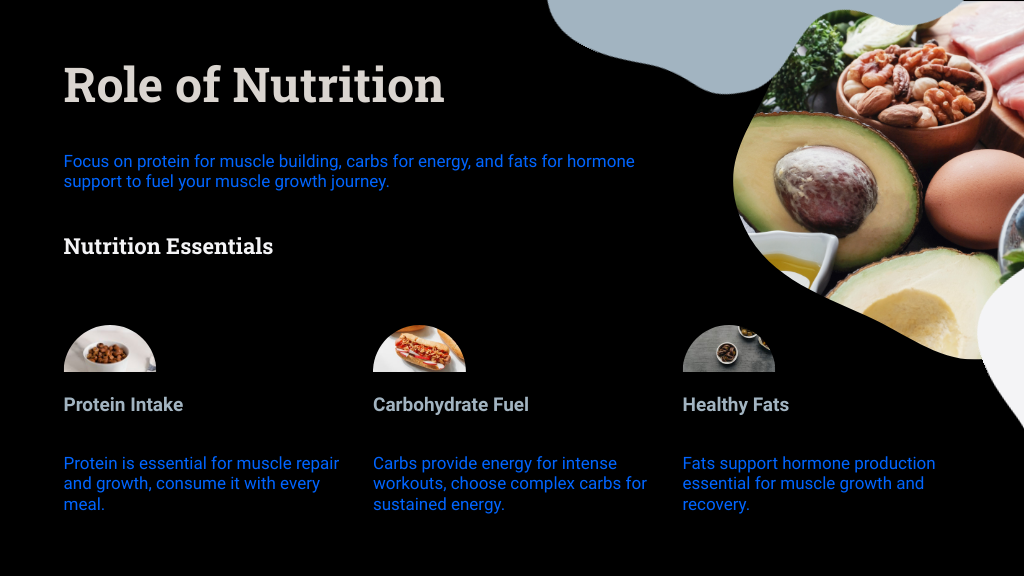
Quick muscle growth hinges on how effectively your meals support your workouts. Proteins are the building blocks, so including ample lean meats, dairy, or plant-based alternatives in every meal is imperative.
Carbohydrates fuel your strenuous activities, and choosing whole grains guarantees sustained energy. Don't overlook fats; they're crucial for hormonal functions that directly impact muscle growth.
Balancing these nutrients optimizes your body's ability to repair and grow muscle tissue, making your effort in the gym count.
As you focus on building muscle, don't underestimate the power of a good night's sleep. Proper rest is essential for repairing your muscles after intense workouts.
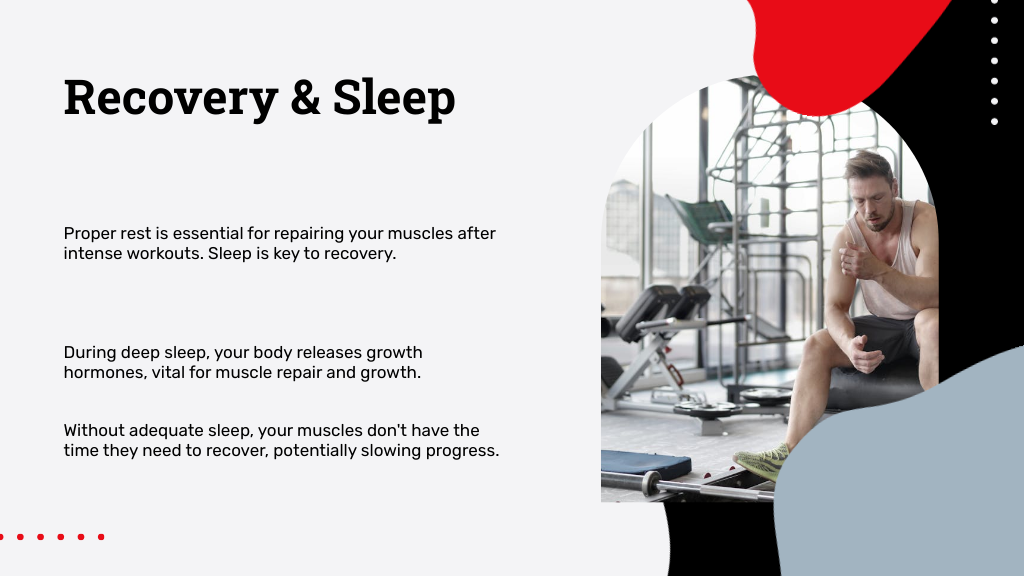
While you might focus on lifting weights and consuming protein to build muscle, it's during sleep that your body truly goes to work repairing and strengthening muscle tissues.
You may wonder how long does it take for muscles to grow or how fast does muscle grow. The truth is, these processes are notably influenced by the quality of your sleep.
During deep sleep, your body releases growth hormones, which are vital for muscle repair and growth. In addition, without adequate sleep, your muscles don't have the time they need to recover from the stress of workouts, potentially slowing your progress.
Prioritizing sleep is essential not just for your health, but also to maximize your muscle-building efforts.
Understanding the significance of recovery time can't be overstated, especially when you're working to build muscle.
Recovery time optimization is essential in determining how long to build muscle effectively. After rigorous workouts, your muscles need time to repair and strengthen. Without sufficient rest, you're risking overtraining, which can stall your progress and lead to injuries.
Adequate sleep is a cornerstone of effective recovery. Aim for 7-9 hours per night to allow your body to perform necessary repairs. Additionally, incorporating rest days into your workout regimen gives your muscles a chance to recuperate fully.
When you're ready to take your muscle-building efforts to the next level, considering the use of supplements can be a game-changer. Supplements might be what you need for the fastest way to build muscle effectively.
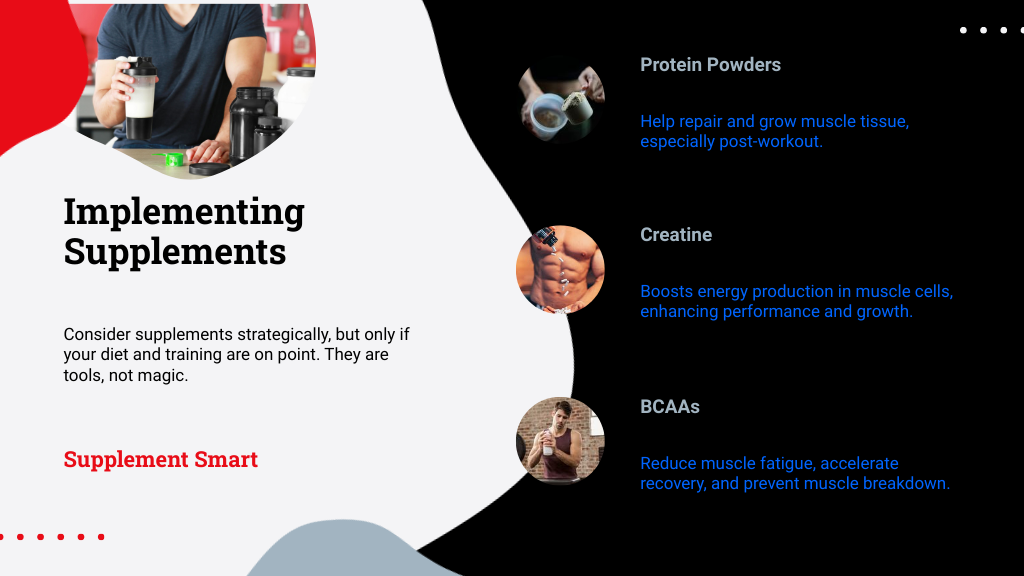
Key supplements include protein powders, creatine, and branched-chain amino acids (BCAAs). Protein powders help repair and grow muscle tissue, especially after a workout, making them vital for how to make muscles fast.
Creatine boosts energy production in muscle cells, enhancing performance and muscle growth during high-intensity training. BCAAs help reduce muscle fatigue, accelerate recovery, and prevent muscle breakdown.
However, it's important to consult a healthcare provider to tailor supplements to your specific needs and guarantee they complement your diet and exercise regimen safely.

As you journey through the muscle-building landscape, remember that your unique genetic blueprint, the ticking clock of age, and the whisper of gender all play pivotal roles. Tailor your workouts with precision, fuel your body wisely, and never underestimate the silent power of rest and recovery. Consider supplements as mere tools in your arsenal, not magic potions. Ultimately, building muscle is an art where you are both the sculptor and the marble, continuously shaping your masterpiece.
Your email address will not be published. Required fields are marked *